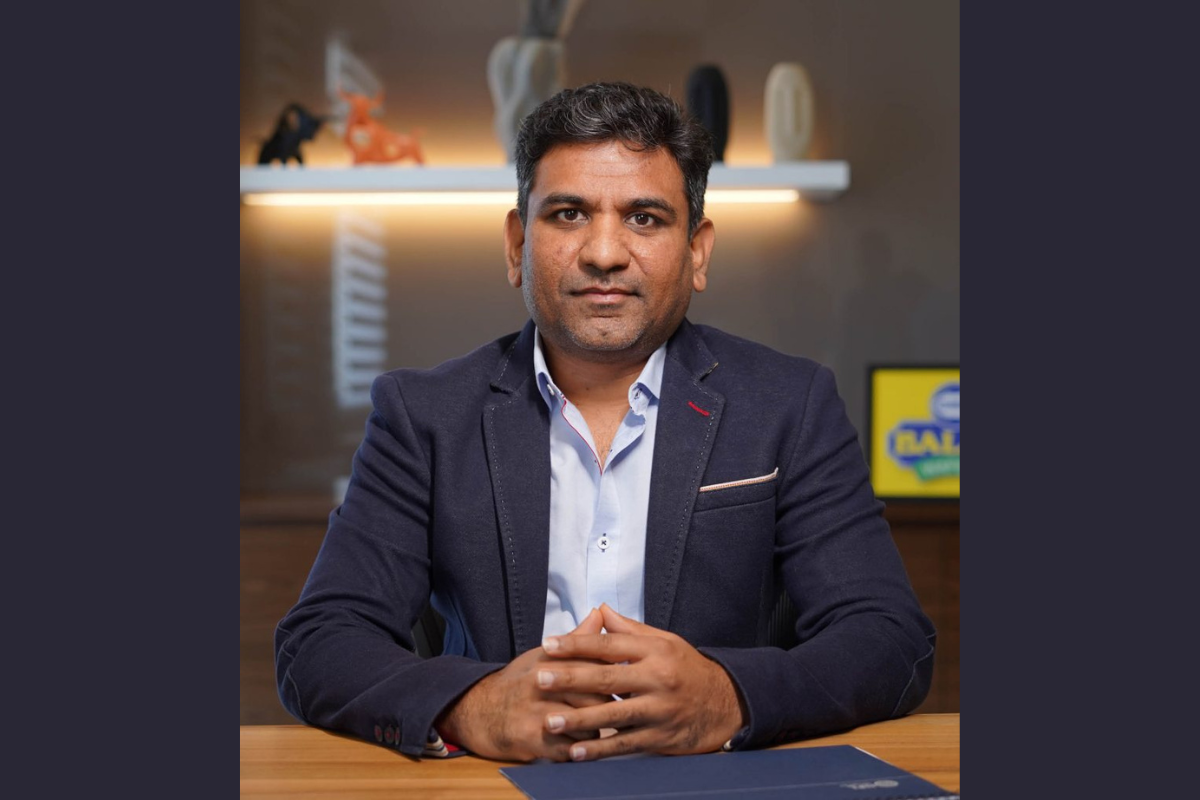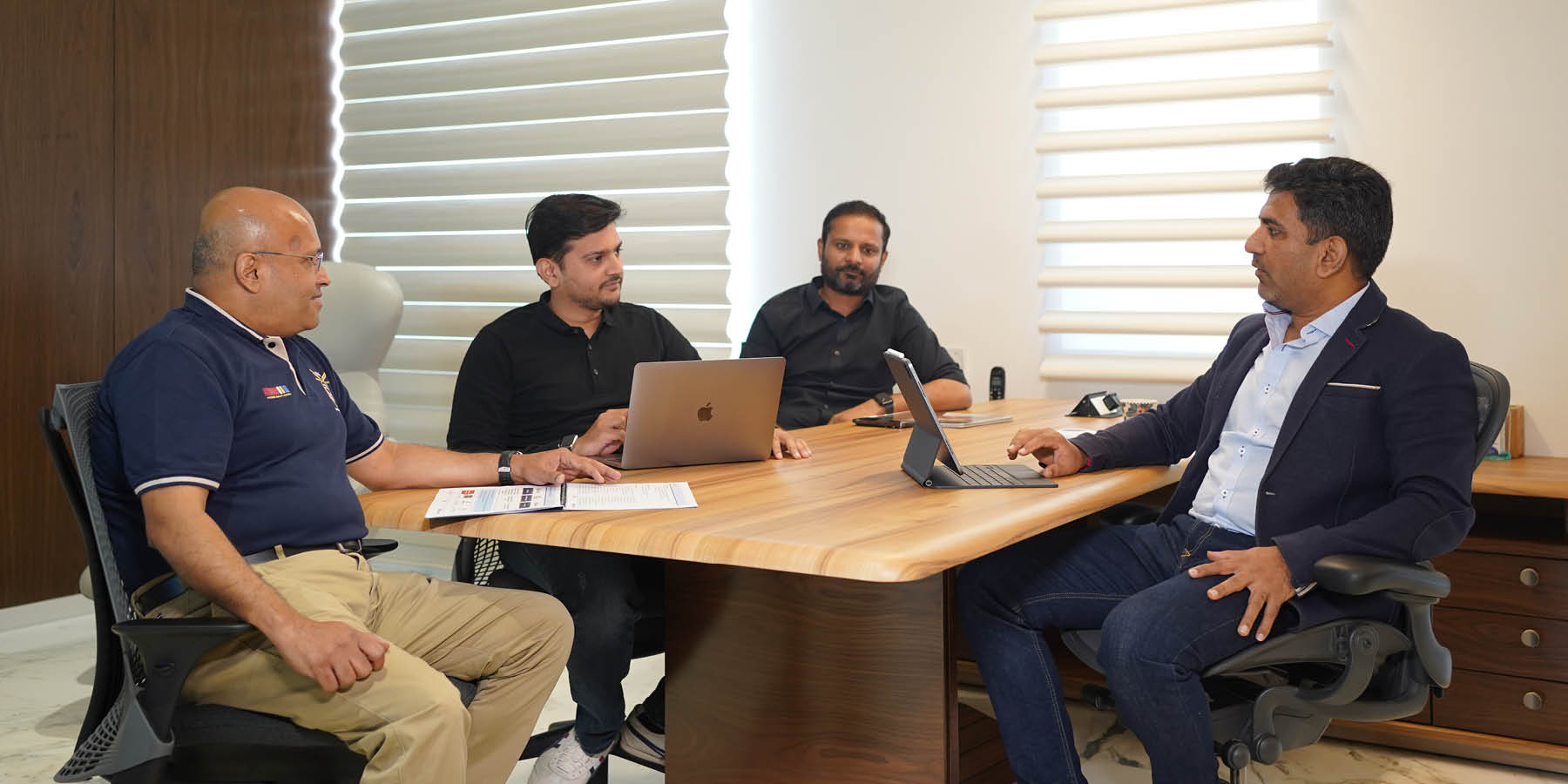Snack Dynasty Goes National: Keyur Virani
For decades, Balaji Wafers has been a guiding light for small businesses looking to grow in the Indian hinterlands. The second generation of the snack food manufacturing company is now looking to graduate from regional dominance to compete on a national stage, according to Director Keyur Virani.
Today, Balaji Wafers-branded snacks, namkeen and wafers can be found in almost all households in western India. But 50 years ago, you’d have to visit the Astron Cinema canteen in Rajkot to find the homemade snack brand, which has since evolved into the behemoth known and loved today.

The journey of the Founder, Chandhubhai Virani, and his brothers, Bhikhubhai and Kanubhai, has been rigorous and challenging, but also fulfilling. However, it’s now time for the next generation of Viranis to take the legacy forward.
As a Director, Keyur Virani is leading the technical overhaul within the company. "My primary interest is on the technical side of the company. I have a solid platform to implement my knowledge, in terms of new processes, engineering, instrumentation and control. I’m focused on automation and process-side engineering," he explains.
Beyond Gujarat
Since joining in 2001, Virani has overseen three new manufacturing plants in Rajkot, Valsad and Indore. And he’s only just getting started. "We have a strong presence in western India – we enjoy about 60-to-70 percent market share in this region – but we’re gradually expanding into northern, northeastern and southern India. For that, we’re looking to build three new plants in the next five years," he says.

I love new technologies and machinery. Every day i’m exploring trends for new skus and new processes to streamline existing ones. My hobby and my work exist together.
Given his affinity for process automation and technical fixes, a large part of this expansion hinges on Virani. The biggest goal he’s set out to achieve is centralization.
"Establishing the new plants in the new territory is a difficult job for us, so we’re implementing standard operating procedure (SOPs) to run them remotely from here," he explains. "We need to be able to control all these plants from Rajkot. That’s our biggest challenge so we’re investing more time and resources into automation and software."
Optimizing supply chains and manufacturing lines while expanding the business is not an easy task, but it is made easier when you’re passionate about solving the most technical of issues. Virani not only looks forward to curveballs, he also enjoys decoding them.
"I love new technologies and machinery. Every day I’m exploring trends for new SKUs [stock-keeping units] and new processes to streamline existing ones. My hobby and my work exist together," Virani says.
We’re leading in automation in every aspect – from process and packaging to distribution.
This obsession has helped Balaji Wafers carve out a name for itself in the market and fend off giants such as PepsiCo, Bikanervala and Haldiram’s.
"Most Indian companies have some sort of products like sweets and bhujias that are completely handmade. We focus on snacks and namkeens that can be automated to make them hygienic and standardized," he explains.
Virani believes end-to-end automation is what sets it apart from multinational competitors.
"We’re leading in automation in every aspect – from process and packaging to distribution," he says.
His inherent curiosity for state-of-the-art processes is bearing results. The first of the new lineup of plants is already under construction in Uttar Pradesh and will be operational within a few months. For the proposed new plant in the southern parts, a team is already identifying lands in Karnataka.
Collaborative atmosphere
It’s evident that such levels of process refinement and automation do not happen in isolation. Virani works with several suppliers to build proprietary technology of the highest standards and capabilities.
"We have installed a manufacturing line with a capacity of 500 kilograms per hour. Gradually, we are now asking suppliers for lines with a processing capacity of about three-to-four metric tons per hour."
Balaji Wafers doesn’t simply demand; it works with suppliers to enable them to reach shared goals. Virani believes in mutual growth, where the company gives back to the suppliers and supports them in improving their business.
Thanks to our collaborations, we have automated traditionally handmade products such as Shing Bhujia and lentils like Moong Dal and Chana Dal. In order to expand we need a good production rate out of them so that’s what we’re working on.
"Thanks to our collaborations, we have automated traditionally handmade products such as Shing Bhujia and lentils like Moong Dal and Chana Dal. In order to expand we need a good production rate out of them so that’s what we’re working on," he says.
The company has 15-to-20 key suppliers attached to the plants, including Ishida, Kanchan Metals, Daifuku, Signode and Sumra. "We need more high-capacity equipment that can reduce our labor cost, power cost and process inefficiency. So these are the key things we are looking for in our current and future suppliers."
From Punjab to Assam, Virani has his eyes set on untapped markets in India. His ambitious expansion plan requires ambitious machinery and technology. So far, he has been able to successfully merge the two.